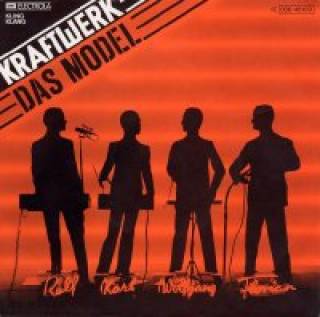To bodaj najbardziej znana piosenka zespołu Kraftwerk. Tekst napisało trzech ówczesnych (1978) członków zespołu: Ralf Hütter (do dziś w zespole), Karl Bartos (opuścił zespół w 1992) przy współpracy Emila Schulta (artysta, który stworzył większość okładek do albumów Kraftwerku). W utworze (jak i w wielu innych piosenkach Kraftwerku) śpiewa Ralf Hütter.
Tekst z http://www.lyricsmode.com/lyrics/k/kraftwerk/the_model.html.
The Model | Modelka |
She’s a model and she’s looking good | Jest modelką i ładnie wygląda, |
I’d like to take her home that’s understood | Chciałbym ją odwieźć do domu, to jasne, |
She plays hard to get, she smiles from time to time | Ciągle gra, czasem się uśmiechnie, |
It only takes a camera to change her mind | Tylko aparat fotograficzny może ją przekonać. |
She’s going out to nightclubs drinking just champagne | Chodziła do nocnych klubów i piła tylko szampana, |
And she has been checking nearly all the men | Sprawdzała tam prawie każdego mężczyznę, |
She’s playing her game and you can hear them say | Grała swoją grę, a oni zawsze mówili: |
She’s looking good for beauty we will pay | Wygląda ładnie, za co my zapłacimy. |
She’s posing for consumer products now and then | Od czasu do czasu ma sesje zdjęciowe do reklam, |
For every camera she gives the best she can | Na każdej sesji daje z siebie wszystko, |
I saw her on the cover of a magazine | Widziałem ją na jakiejś okładce, |
Now she’s a big success, I want to meet her again | Osiągnęła sukces, a ja chciałbym ją jeszcze kiedyś spotkać. |




